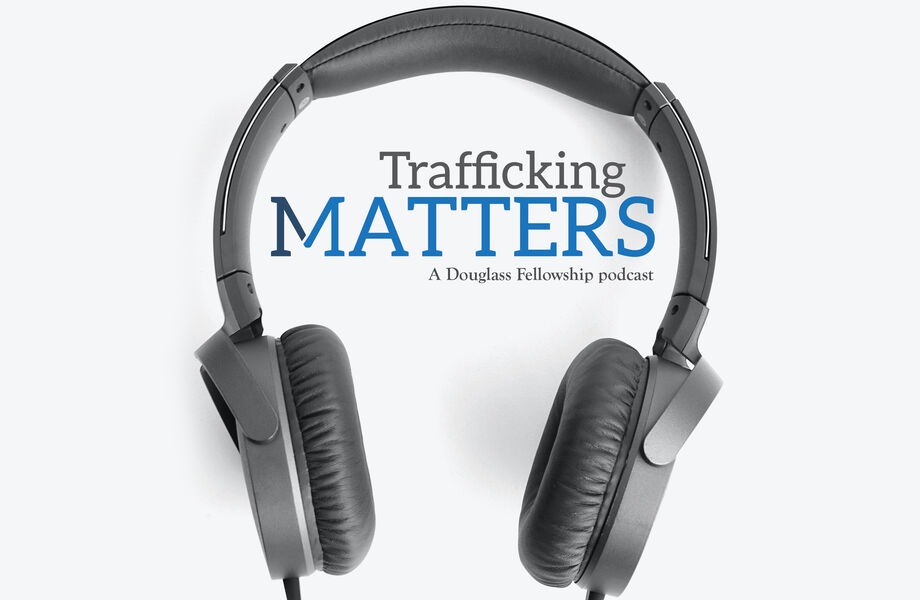By: BRADEN STORER
This August, the Nebraska Supreme Court upheld the conviction of Anthony Swindle, who was sentenced to 180 years in prison on two counts of sexual assault of a minor – one of sex trafficking and one of sex trafficking of a minor. This marks one of the most significant steps forward in the fight against human trafficking in Nebraska.
While Nebraska might be known for corn and football, it has also become increasingly known as a hub for human trafficking. According to a study done by the Women’s Fund of Omaha, an estimated 900 individuals are sold for sex every month in Nebraska, often multiple times. This, however, is beginning to change. The Nebraska Legislature, Attorney General, and law enforcement agencies across the state are making significant strides in strengthening the laws and taking a proactive approach to combat human trafficking. In 2015, the Legislature passed the first comprehensive anti-trafficking bill in history. It strengthened penalties for trafficking-related offenses, provided for a specific prohibition against human trafficking, and afforded law enforcement and the courts greater authority to investigate cases of trafficking and protect victims. The Attorney General created the first Human Trafficking Task Force, which has worked to create regional response teams, train law enforcement, and foster greater collaboration between law enforcement, service providers, and other key players.
With this new precedent set by the Nebraska Supreme Court, here are some key takeaways from the decision.
1) The trafficker does not need to know the victim’s age in order to be convicted of sex trafficking of a minor under the age of 16
The defendant in this case was convicted of trafficking two young girls in Omaha. One was 21 at the time she was trafficked, and the other was 15. Under the new law passed by the legislature at the time of the defendant’s conviction, the trafficking of an individual who is under the age of 16 was a Class II felony, which carried with it a mandatory minimum of one year or up to 50 years in prison. In contrast, sex trafficking of an adult was a Class IIA felony with no mandatory minimum and a maximum permissible sentence of 20 years.
At trial, the defendant argued he was unaware the victim was only 15 at the time she was trafficked, and therefore, he could not be convicted of this enhanced crime. Despite his argument, the jury found him guilty, and the Nebraska Supreme Court upheld this conviction.

The Court found that under the statute, the defendant only needs to know he is “engaged in conduct for the purpose of sex trafficking,” not whether or not he knew the age of the victim. The only relevant fact as it relates to the age of the victim is whether the victim was actually a minor at the time of the defendant’s conduct. Thus, traffickers can be found guilty of the enhanced offense even if they were not aware of the victim’s actual age.
2) The trafficker’s defense attorney was not permitted to introduce evidence of the victim’s prior sexual history or false accusations of rape
In an attempt to discredit the victim’s testimony, the defense attempted to introduce evidence the victim had, on multiple prior occasions, slept with older men and then falsely claimed she had been raped. However, the trial court would not permit the defendant to introduce this evidence, and the Nebraska Supreme Court affirmed that decision. The Court based this affirmation on two grounds, but one ought to be highlighted: the victim’s prior sexual history is irrelevant.
In the words of Nebraska Supreme Court Justice Jeffrey Funke:
There is simply no relevant connection between [the victim’s] alleged prior false claims of rape and the crimes at issue. [The defendant] sought to discuss [the victim’s] past sexual conduct in order to undermine her credibility for the improper purpose of arguing that [the defendant’s] assault of [the victim] did not take place.
In other words, the Court affirmed that sex with one person is not consent to sex with all people. This is a significant finding and provides victims of sex trafficking with protection from irrelevant and harassing questioning from the defense while also preventing juries from hearing evidence which would only confuse or distract them from the issue.
3) The Court upheld one of the strongest sentences for sex trafficking in Nebraska state history
The trafficker in this case was sentenced to a minimum of 180 years in prison, with 120 of those years being served for the sex trafficking charges alone. The Court found that these sentences were not excessive or disproportionate, given the defendant “repeatedly sought out vulnerable victims and used violence and manipulation to force them into his sex trafficking business.”
Such a sentence sends a message to Nebraskan traffickers that Nebraska is moving in the direction of becoming a riskier place to “do business.” This decision shows Nebraska is not only serious about passing strong laws, but also enforcing these laws through local law enforcement and upholding them at the Nebraska Supreme Court. As a result, anti-trafficking laws are becoming less like obligatory words in the code and more like weapons to be used against traffickers.
4) Human trafficking is a layered crime which may not appear to be trafficking on the surface
The two victims in this case could easily be seen by the public as criminals themselves, consenting to the prostitution of their bodies. However, a look beneath the surface reveals the true nature of their exploitation.

The defendant approached the two victims while they were walking on the street and manipulated them through force and intimidation. By exploiting the victims’ vulnerabilities – homelessness, prior sexual abuse, and poverty – he coerced the women to perform sexual acts for his own gain.
In court, one of the victims testified she developed feelings for her trafficker but also felt intimidated by him. She felt she had no choice but to stay. In one instance, the trafficker’s abuse hospitalized one of the victims, yet she did not provide any information to law enforcement officers because she was unwilling to do so.
It is thus important for law enforcement to recognize that when it comes to prostitution and trafficking, the guilty party may be different than it appears.
5) The minor victim was identified by law enforcement because her mother had filed a missing person’s report
Locating, prosecuting, and charging a trafficker requires vigilant efforts not only from law enforcement officials and prosecutorial teams but also the community at large.

Perhaps one of the most uplifting aspects of this case was the collaborative work of an Omaha police officer with the minor victim’s mother. After filing a missing person’s report, the mother received a call from a police officer, who identified her daughter from an online escort advertisement. Thanks to the detective work from the police force and the diligent efforts from the victim’s mother, the victim was rescued from a hotel later that day.
This highlights the importance of missing person’s reports in identifying victims of sex trafficking, even (and perhaps especially) for individuals who may be characterized as “frequent runaways.” It also spotlights the importance of diligent and proactive police work, as the officer in this case could identify the signs of trafficking and then act with swiftness. The facts of this case demonstrate the effect a multi-disciplinary, proactive, and well-trained response can have in rescuing victims and bringing justice to their oppressors.
Conclusion
State v. Swindle is a landmark decision. For those engaged in the fight against human trafficking, it is an inspiring and hopeful example of persuasive and binding legal precedent that will protect victims and bring traffickers to justice in the state of Nebraska while also setting the tone for states across the nation. Anthony Swindle is just one trafficker, but his case is now a part of a growing movement to decimate trafficking and ensure that slavery is abolished in all its forms.




